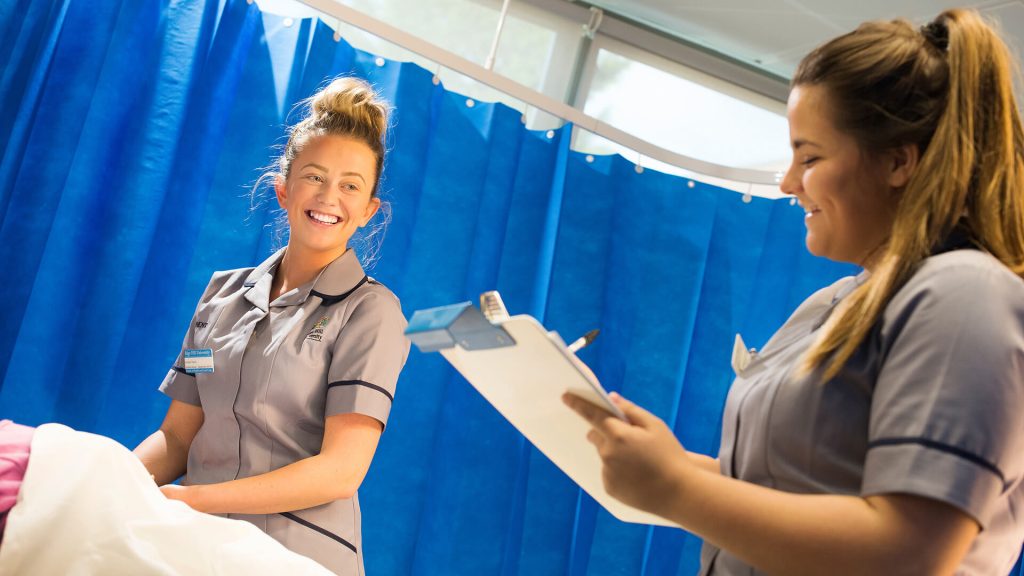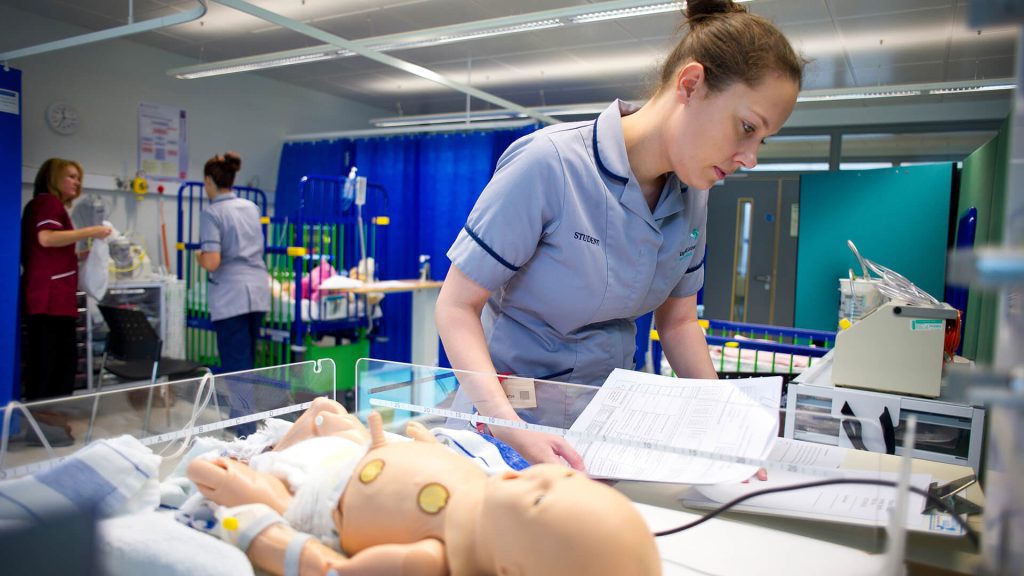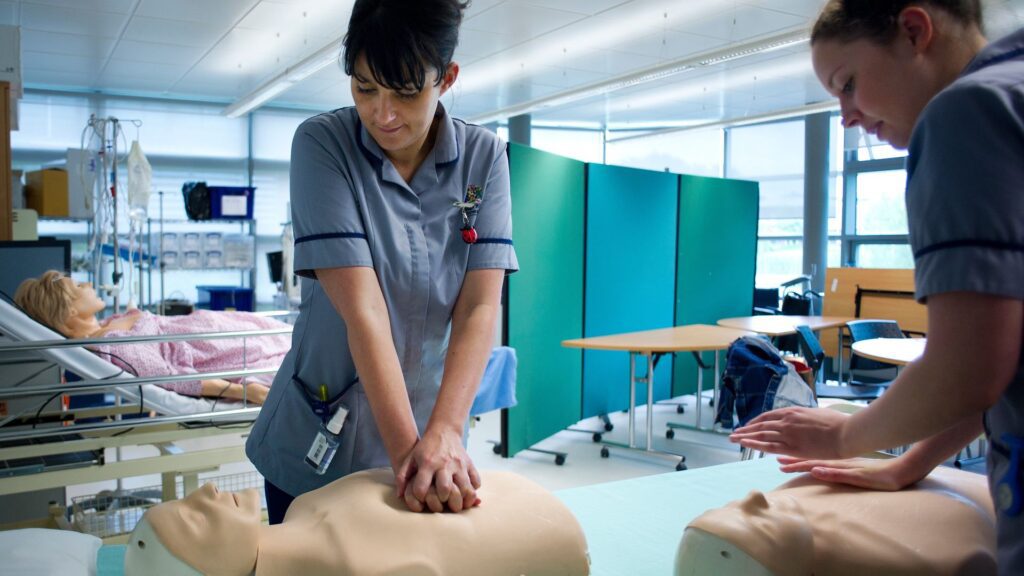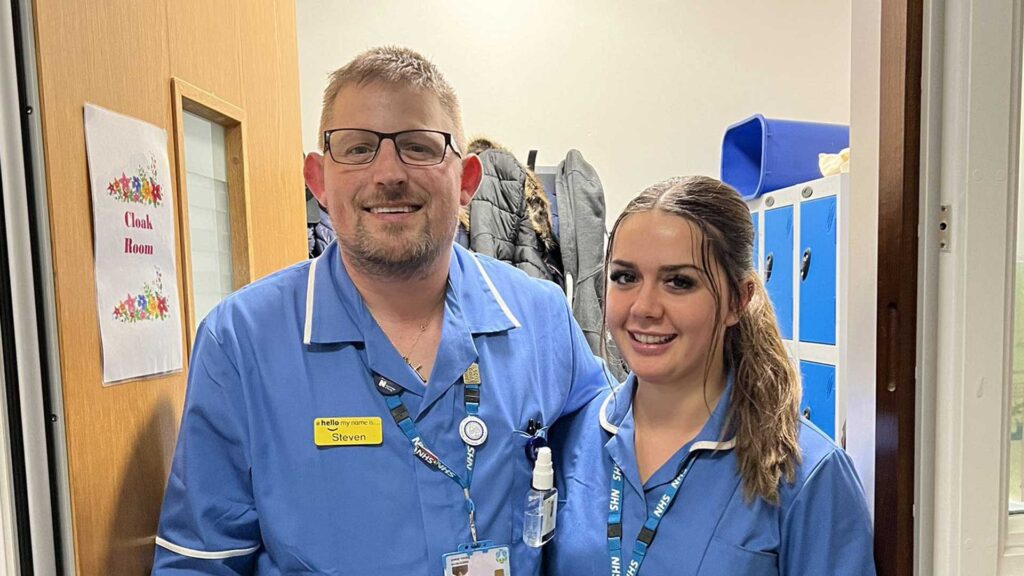Nursing (Learning Disabilities) MSc
Do you have what it takes to provide compassionate care? Could you encourage and support independent living? Study with us and gain eligibility to register as a qualified learning disabilities nurse with the Nursing and Midwifery Council.
Overview
| Course length: | 2 years full-time |
|---|---|
| Start dates: | January 2025 |
| Location: | Edge Hill University |
| Subject(s): | Nursing |
| Faculty: | Health, Social Care and Medicine |
| Department: | Nursing and Midwifery |

Imagine having the skills to make a difference to the life chances of someone with learning disabilities. Imagine breaking down barriers they face and becoming the advocate they need to live a fulfilling life.
Join us to prepare to work with people who have a diverse range of health conditions and support individuals as they face different challenges.
On this MSc Nursing (Learning Disabilities) degree, you’ll learn how to deliver care to adults and children with learning disabilities, while also getting a broader awareness of the needs of all client groups.
You’ll promote good physical and mental health alongside emotional wellbeing, with the opportunity to apply what you’ve learnt on supervised work placements.
By the time you graduate, you’ll have developed the skills to help plan, coordinate and deliver care. And you’ll be able to register as a qualified learning disabilities nurse with the Nursing and Midwifery Council (NMC).
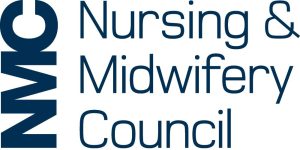
Course features
-
Professional accreditation
-
Professional practice placements
What you'll study
This programme adheres closely to the six core values of the NHS. These values, enshrined within the NHS Constitution, have been developed by patients, the public and staff to inspire passion in the NHS, guide it in the 21st century, and provide common ground for cooperation in achieving shared aspirations.
You’ll learn the skills, knowledge and attributes which help you to become proficient, as required by the Nursing and Midwifery Council.
In your first year, you’ll focus on what it means to be a professional who is resilient, emotionally intelligent, and a confident communicator. You’ll also explore the importance of evidence-based care and research methodologies. To see the principles of person-centred care in action, you’ll complete supervised practice placements.
In Year 2 there’s a focus on leadership, quality and care evaluation, pharmacology and medication management, and how to influence and work with a range of other professionals and services. You’ll be introduced to the principles of organisational change and public policy, and develop political awareness to prepare you for working in the sector. Further practice placements will support your nursing proficiencies and ensure you’re ready for registered nursing practice.
How you'll study
The programme places emphasis on independent learning, supported by classroom-based sessions and the use of technology enhanced learning. While the majority of classes will take place at Edge Hill University, some may involve studying at sites other than Ormskirk in which case you will be responsible for travel and parking costs.
You will develop clinical skills confidence through a combination of simulated education and extensive time in practice undertaken in hospital and community settings within the NHS, local authorities, and independent and voluntary organisations. Practice settings will be drawn from our network of more than 600 placement locations across Merseyside, Cheshire and Lancashire. You will be supported by a practice placement assessor and supervisor.
Placements include weekend, early morning, evening and night work to ensure access to a full range of practice experiences across 24-hour care. You will be responsible for travel and parking costs while on placement. There may also be the opportunity to undertake a practice learning experience outside the region, either within the United Kingdom or internationally.
How you'll be assessed
In each year, you will be assessed by a written assessment, oral assessment, a simulated practical assessment and an online time-limited assessment.
While on practice placement, you will be supported in the development of the application of knowledge and skills, leading to the assessment of related proficiencies.
Who will be teaching you
You will taught by professionals in learning disabilities nursing, other fields of nursing, and other specialist areas within health and social care.
The programme team represent a range of qualified, research-active professionals with extensive experience of working in the health and social care sector.
Most importantly, service users, carers and their families will be involved in facilitating your learning so that you gain an understanding of the impact care has on individual groups.
Entry criteria
Entry requirements
You should have a degree equivalent to UK first-class or second-class honours (2:2 or above). Health-related subjects are preferred but not essential. Other subjects will be considered on an individual basis.
An interview forms part of the selection process.
Pre-registration nursing courses are typically three years in duration so, in order to join this two-year MSc, you will be required to apply for Recognition of Prior Learning (RPL). This will be in the form of three short pieces of written work (essays) and evidence which will also confirm that you have met a minimum of 700 hours of appropriate health-related occupational or voluntary experience. Further details about RPL, including guidance on the development of your three short academic essays, will be sent to you upon successful completion of an interview.
If you accept an offer from Edge Hill you will need to satisfy the requirements of the Nursing & Midwifery Council in respect of physical and mental fitness and will be required to apply for a Disclosure and Barring Service (DBS) Enhanced Disclosure indicating that you meet the mandatory criteria of ‘Clearance to Work with Children and/or Vulnerable Adults’. Further information will be sent to you after you have firmly accepted an offer.
How to apply
There is an online application process for this course.
Should you accept an offer of a place to study with us and formally enrol as a student, you will be subject to the provisions of the regulations, rules, codes, conditions and policies which apply to our students. These are available at www.edgehill.ac.uk/studentterms.
There’s plenty of opportunities to come take a look around campus. Attend one of our open days to see what life at Edge Hill University is all about.
Book an open day
Facilities
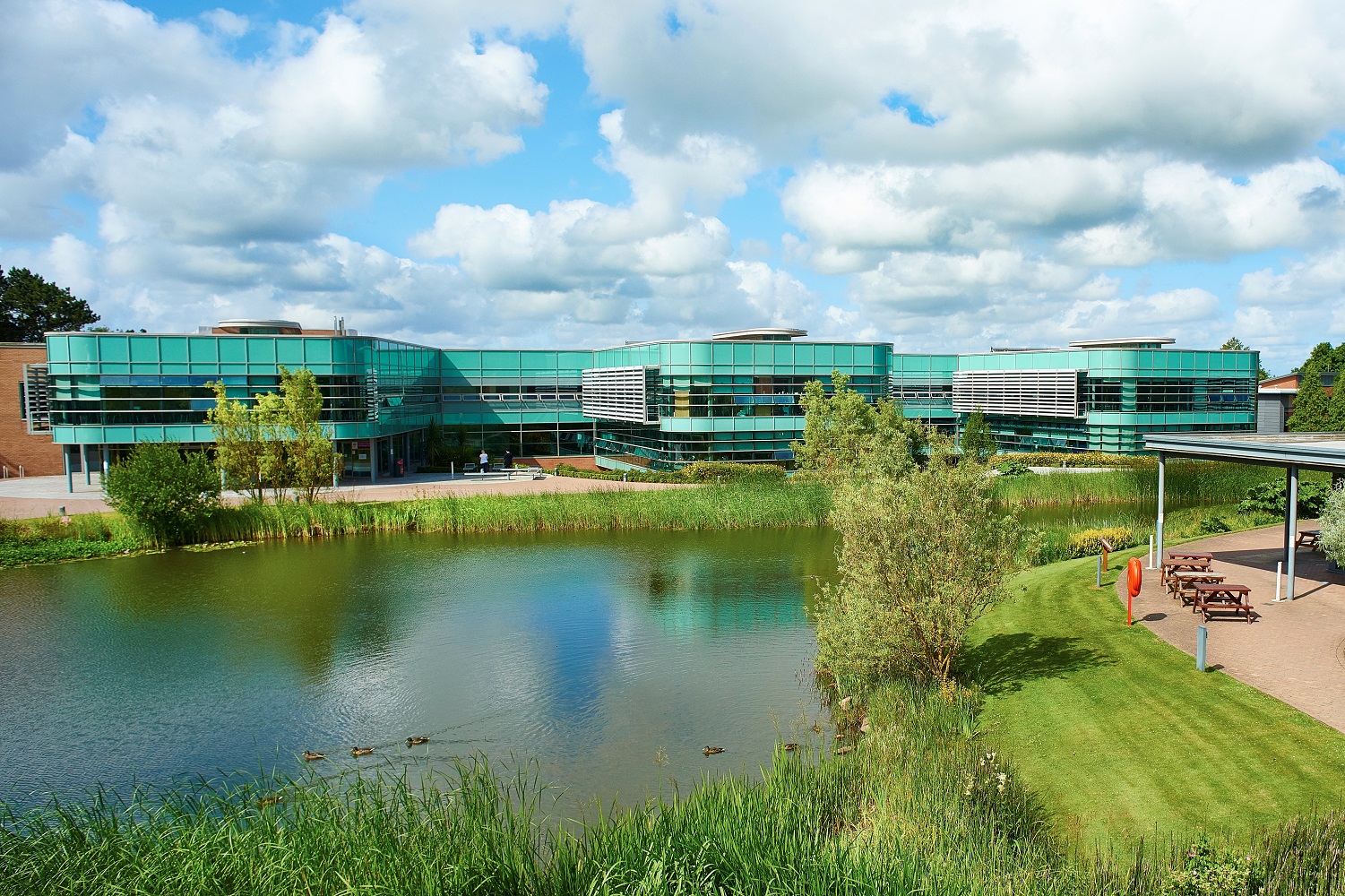
The Faculty of Health, Social Care and Medicine offers outstanding facilities for the education and training of health and social care professionals.
The contemporary teaching and learning resources include leading edge clinical skills facilities, an 860-seat lecture theatre, and a variety of teaching rooms and social learning spaces.
Where you'll study
Clinical Skills and Simulation Centre
Faculty of Health, Social Care and Medicine
Learning resources
The Clinical Skills and Simulation Centre offers a variety of simulated environments from home, through primary and emergency care, to secondary care and beyond. The flexible and adaptable facilities include a ward environment, operating theatre, an anatomy and ultrasound resource centre, a ‘Better at Home’ suite, clinical skills area and consultation rooms.
You will benefit from access to a wide variety of healthcare equipment, as well as a range of full-body patient simulators that can breathe, talk, have pulses and can simulate a wide range of symptoms and clinical conditions. This will enable you to undertake practical scenarios in realistic settings, providing ideal preparation for professional practice placements and future employment.
Finance
Tuition fees
UK Full-Time
£9,250
a year
EU/EEA and Swiss students who have settled or pre-settled status under the EU Settlement Scheme, as well as Irish nationals, may be eligible for the UK tuition fee rate.
Financial support
Students on this course may be entitled to the NHS Learner Support Fund if eligible. Visit the NHS Business Services Authority website for further information.
Subject to eligibility, UK students joining this course can apply for a Tuition Fee Loan from the Government to cover the full cost of tuition fees. UK students enrolling on the course may also be eligible to apply for additional funding to help with living costs. Applicants to Student Finance should apply for undergraduate funding. If you are applying to Student Finance England, you should apply for financial support as if you are an undergraduate student, rather than for postgraduate funding. The exception to this rule is if you are applying to Student Finance Wales. Student Finance Wales treat the funding for this course as postgraduate. Please view the relevant Money Matters guide for comprehensive information about the financial support available to eligible UK students.
Please view the relevant Money Matters guide for comprehensive information about the financial support eligible to UK students.
EU/EEA and Swiss students who have settled or pre-settled status under the EU Settlement Scheme may be eligible to apply for financial support. Irish nationals can ordinarily apply to Student Universal Support Ireland (SUSI). Please see our EU student finance page for further details.
Your future career
Training as a learning disability nurse will make you highly employable in one of the most rewarding careers. Following registration as a learning disability nurse with the Nursing and Midwifery Council, you can pursue a career in settings such as:
- residential homes
- supported living accommodation
- assessment and treatment units
- specialist learning disabilities teams in the community
Increasingly, qualified learning disabilities nurses are getting posts as health facilitators and specialist advisors to support people with learning disabilities.
You might choose to go into leadership, management and consultancy, or education and research. There are plenty of opportunities for further professional development and specialism.
Course changes
Every effort has been made to ensure the accuracy of this information, however our courses are subject to ongoing review and development. Changing circumstances may necessitate alteration to, or the cancellation of, courses.
Changes may be necessary to comply with the requirements of professional bodies, revisions to subject benchmarks statements, to keep courses updated and contemporary, or as a result of student feedback. We reserve the right to make variations if we consider such action to be necessary or in the best interests of students.
